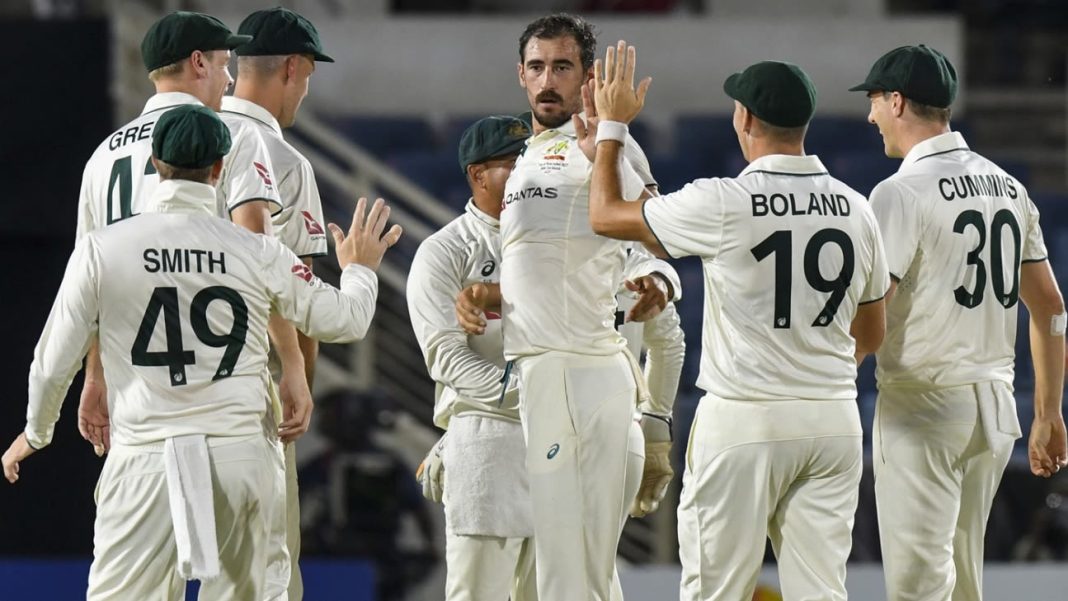Cricket, a sport that resonates deeply across India, frequently sparks passionate debates about team selection, player form, and future strategy. These discussions are by no means exclusive to the subcontinent. A recent statement from Australian cricketing legend Steve Waugh has ignited a similar discussion Down Under, questioning whether the current Australian selectors possess the fortitude to make the tough, sometimes unpopular, decisions necessary for the team’s sustained success. For a nation that prides itself on its relentless pursuit of cricketing excellence, Waugh’s remarks carry significant weight, prompting reflection on the balance between sentiment and ruthlessness in elite sport.
Steve Waugh’s Challenge to the Selectorial Panel
Waugh, a former captain renowned for his unwavering resolve and strategic acumen, articulated his concerns regarding the Australian selection process. His commentary highlights a perceived hesitancy to move on from established players, even when their form might be waning, or to fast-track promising youngsters who could revitalise the squad. In an era where international schedules are gruelling and player burnout is a real concern, the ability to rotate, manage loads, and introduce fresh talent is paramount. Waugh’s view suggests that the current panel might be prioritising stability and past performance over a proactive, future-oriented approach.
“It’s about having the courage to make the tough decisions, even if they’re unpopular in the short term, for the long-term benefit of Australian cricket,” Waugh was quoted as saying, emphasising that sentimentality has no place when national team performance is at stake. This sentiment echoes loudly in countries like India, where the clamour for younger players and the dropping of senior figures often dominates cricketing discourse. The pressure on selectors to balance fan expectations, media scrutiny, and the actual performance metrics is immense, and Waugh’s comments bring this universal challenge into sharp focus.
For a team like Australia, which has historically dominated world cricket through a combination of talent and an uncompromising approach, any questioning of their selection integrity strikes a chord. Waugh’s generation of cricketers often saw swift, decisive changes made, sometimes even to popular players, if it was deemed beneficial for the team’s trajectory. This uncompromising stance, in his view, is what shaped the formidable Australian sides of the past, and he appears to be advocating for a return to that ethos.
The Dilemma of Modern Cricket Selection
The role of a national selector in modern cricket is arguably more complex than ever before. With three distinct formats of the game – Test, One-Day International, and Twenty20 – each requiring specialised skills and temperament, the selectorial panel faces a multifaceted puzzle. Players often excel in one format but struggle in another, forcing selectors to make nuanced decisions about specialist roles versus multi-format versatility. Furthermore, the advent of global T20 leagues has added another layer of complexity, with player availability and form in these leagues influencing national selections.
Waugh’s comments likely stem from observations of recent Australian performances and team compositions. While Australia has enjoyed periods of success, there have also been instances where questions have been raised about consistency, particularly in key positions. The challenge lies in identifying when a player is merely going through a lean patch versus when their time at the highest level is genuinely drawing to a close. This distinction requires not just data analysis but also an astute understanding of player psychology, potential, and the team’s overall strategic direction.
In the context of Indian cricket, similar debates frequently surface. The balance between established stars and emerging talent, the pressure to perform in high-stakes series, and the intense public and media scrutiny make selection an unenviable task. Waugh’s call for tougher decision-making could be seen as a global plea for cricket boards to empower their selectors to put the team’s long-term health above short-term appeasement or loyalty.
Looking Ahead: The Impact on Australian Cricket’s Future
Waugh’s critique is not just a reflection on the past or present; it serves as a powerful call to action for the future of Australian cricket. As major international tours and tournaments loom – including an Ashes series and potentially another trip to India – the strength and depth of the Australian squad will be rigorously tested. The ability to identify, nurture, and strategically deploy talent will be crucial.
If the Australian selectors heed Waugh’s advice, it could signal a more dynamic and merit-based selection approach. This might involve bolder calls – backing unproven talent with a higher ceiling, or respectfully moving on from veterans who, despite their contributions, are no longer performing at the required level. Such decisions, while potentially unpopular initially, could lay the groundwork for a more resilient and future-proof Australian team, much like the formidable sides Waugh himself captained.
Ultimately, Steve Waugh’s comments serve as a pertinent reminder that success in elite sport often hinges on the courage to make difficult choices. For Australian cricket, and indeed for any major cricketing nation, the ability of its selectors to make these “tough calls” will be a defining factor in shaping its trajectory on the global stage. The cricketing world, especially enthusiasts in India, will be watching closely to see how Australia responds to this challenge from one of its most revered figures.
*




